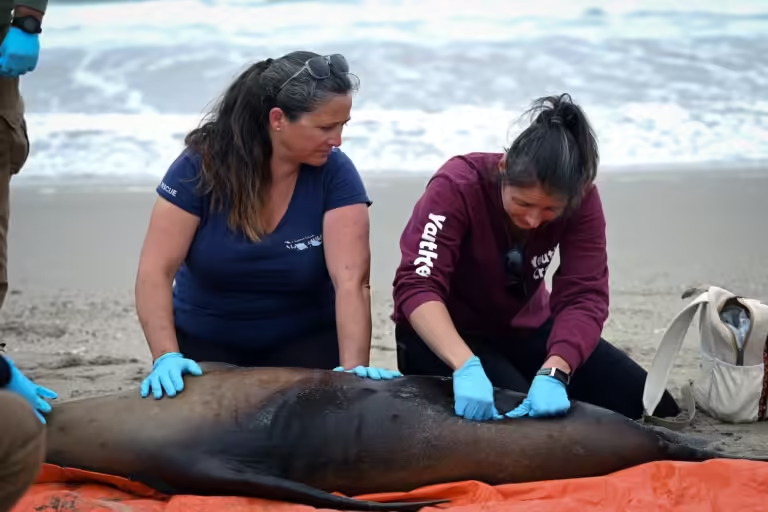Sea lions that have been exposed to a neurotoxin produced by a certain type of algae have been washing up on the California coastline, and those that don’t die from the algae are showing some very strange behavior, like becoming disoriented and staring into space.
The Channel Islands Marine Wildlife Institute, a nonprofit that works to rescue and rehabilitate marine life around the Santa Barbara Channel, said in a social media post that it has been inundated with calls and emails. CIMWI receives about 100 reports a day of sick animals, some of which are the same animal.
Sea lions show several warning signs of domoic acid poisoning, including gazing at the sky, disorientation, head shaking, foaming at the mouth, lethargy, unresponsiveness, muscle spasms, seizures and an inability to escape the tide.
Domoic acid is produced by Pseudo-Nitzschia, an algae that typically grows in large numbers when cold water rises to the surface in spring and fall, carrying nutrients that the algae feed on. The algae is eaten by small fish, shellfish, bivalves, and other small animals, which in turn are eaten by sea lions, dolphins, and birds. In extreme cases, ingestion of domoic acid is fatal to sea lions. In June 2023, there were reports of more than 1,000 cases of illness and death of marine animals in one week in the same area due to a Pseudo-Nitzschia outbreak.
Data from the Southern California Coastal Ocean Observing System is not yet available, so the severity of the current outbreak is unknown. Anyone seeing a sea lion showing symptoms should be advised not to touch or approach the animal, but instead, record its location and contact CIMWI’s rescue team.
CIMWI advised the public that investigating each report may take time due to the limited number of volunteers working along the 155-mile (250-kilometer) coastline of Santa Barbara and Ventura counties. In an emailed statement, the institute said 25 sea lions have been rescued so far.
Officials from the nearby Vandenberg Space Command are assisting CIMWI with the rescue effort, and the base said in a statement that while they are working to rescue the beached sea lions, military personnel are testing marine life found on the facility for toxins.

